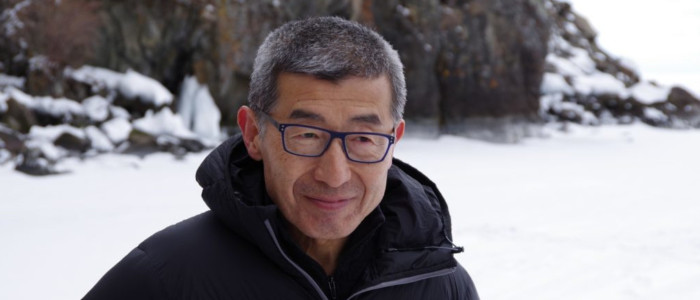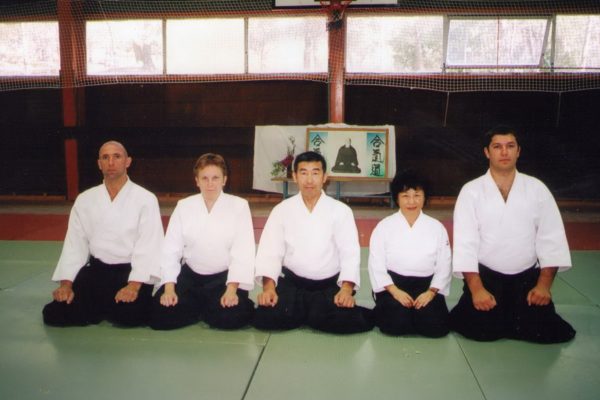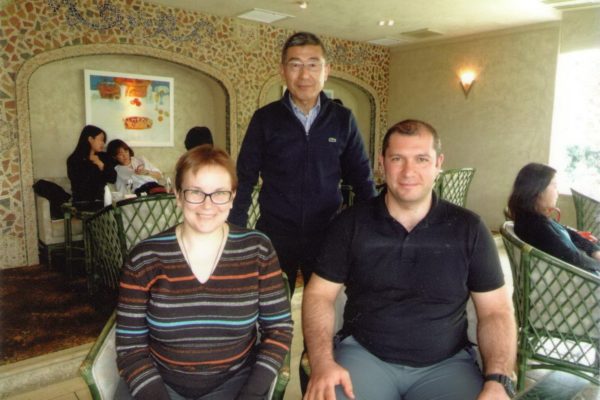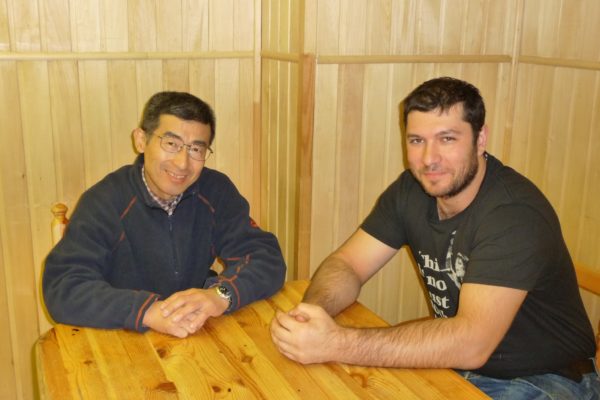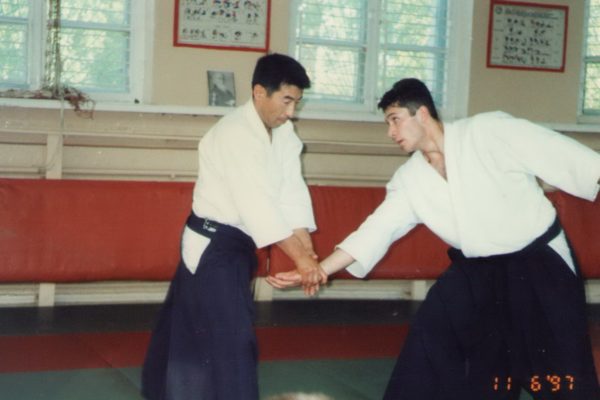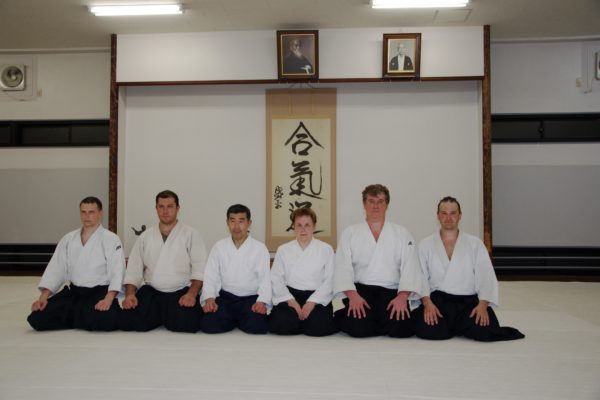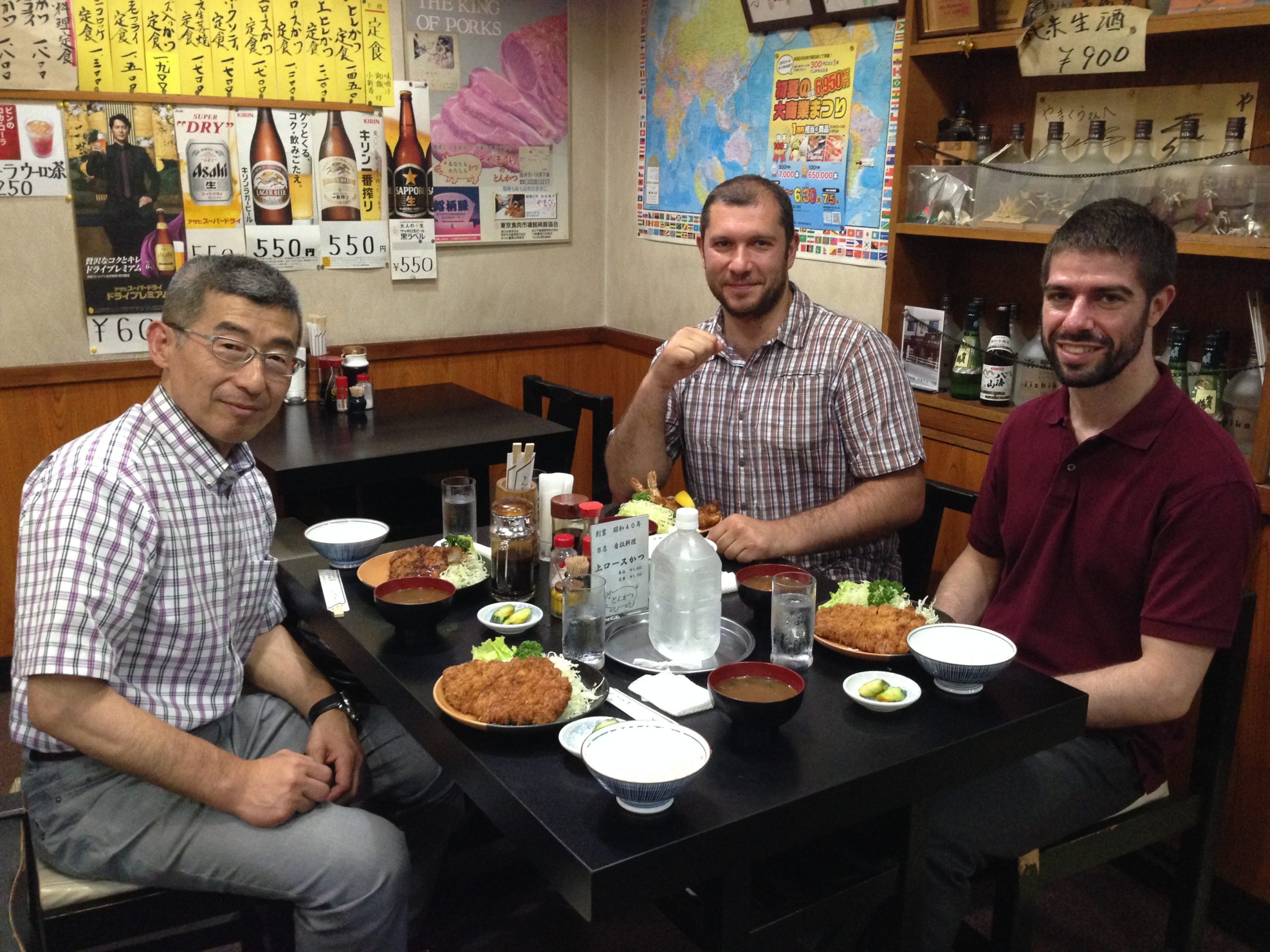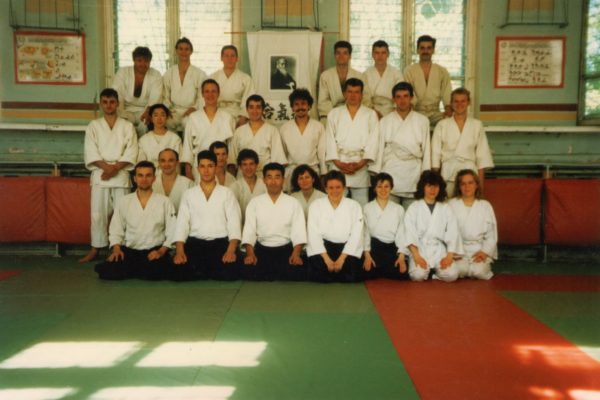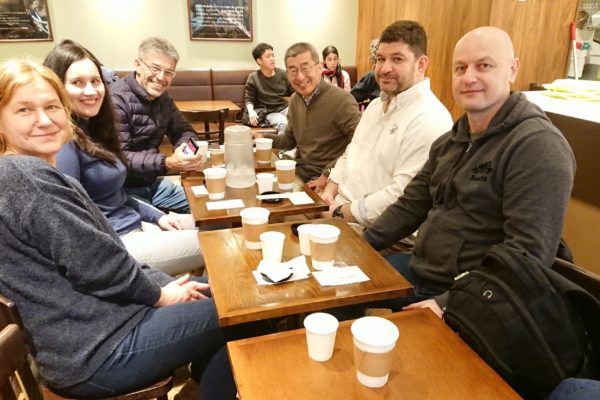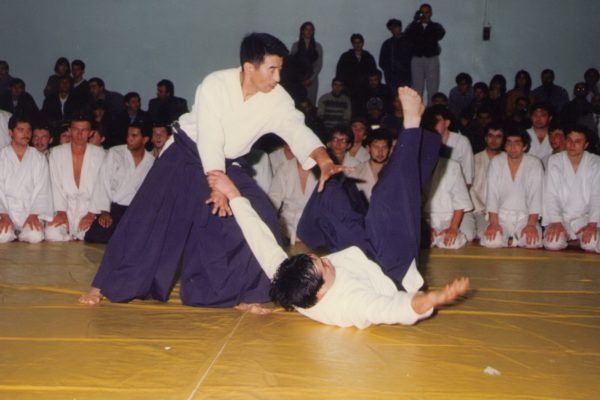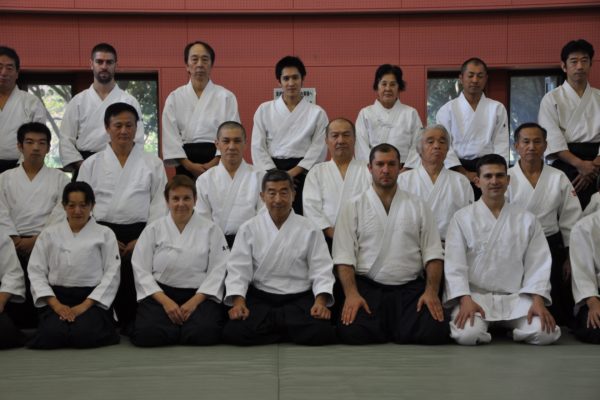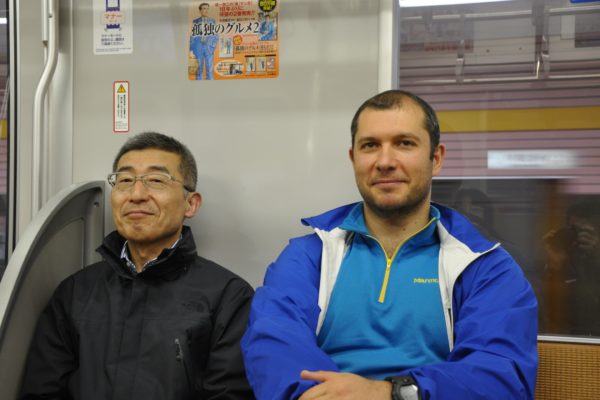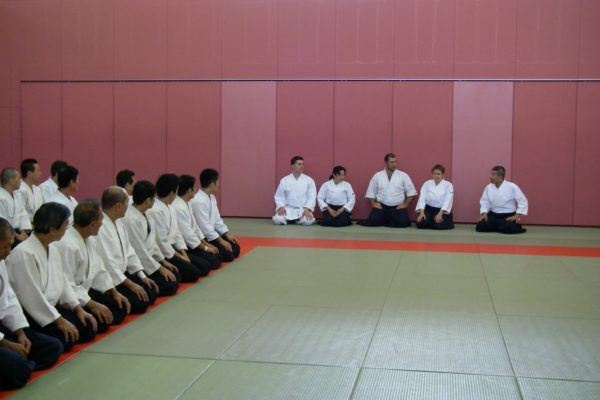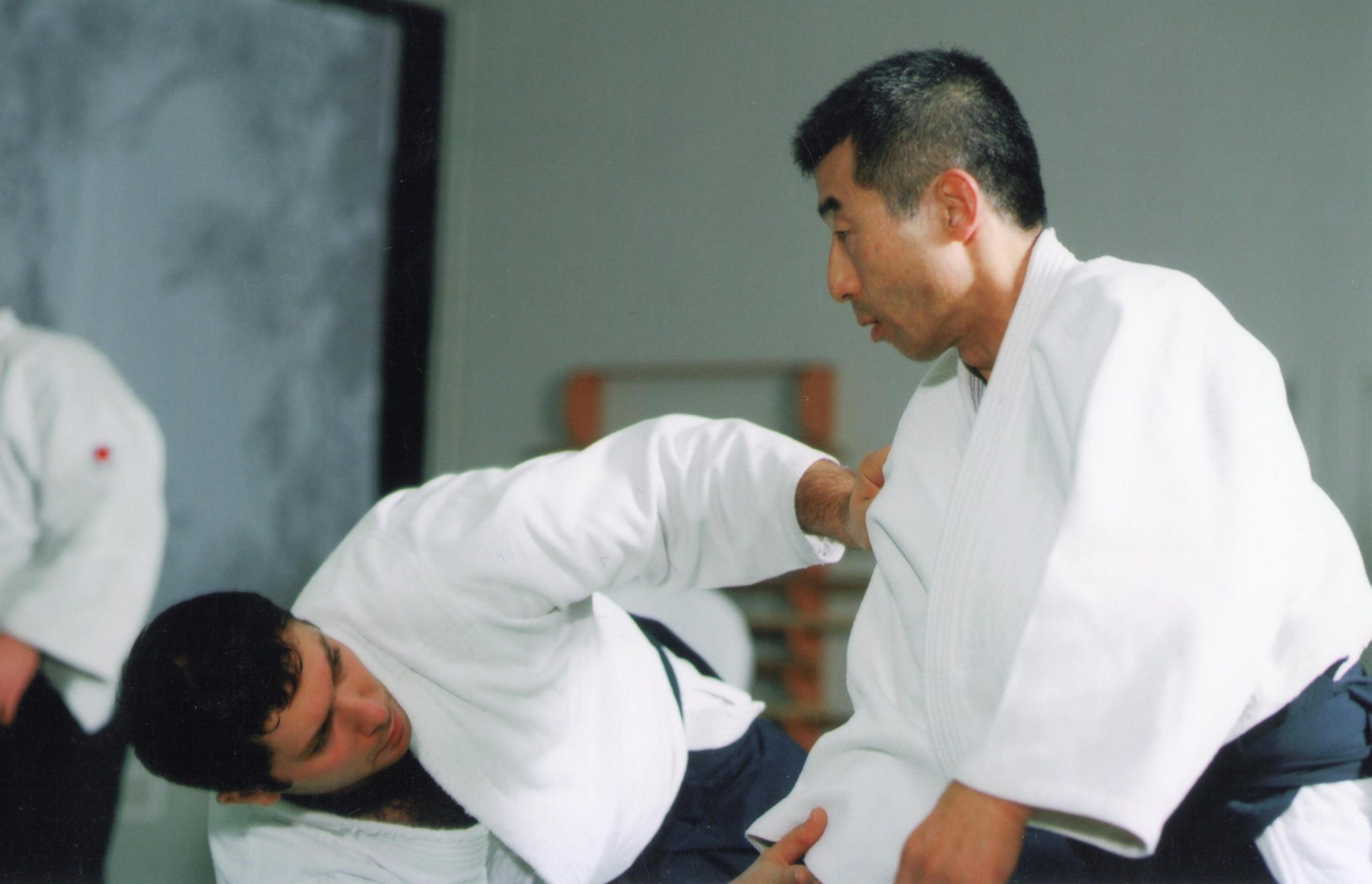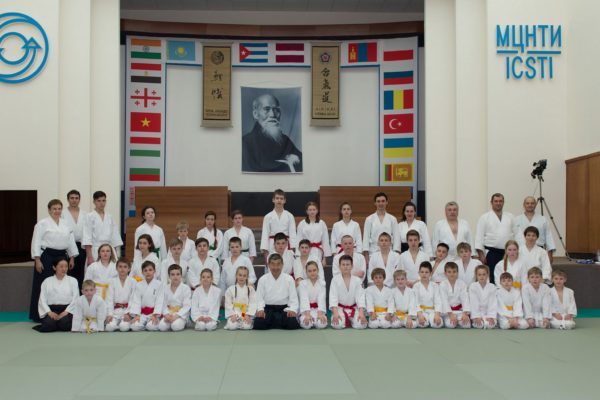Thank You, Seki Sensei! On the Occasion the 30th Anniversary of Koinobori Dojo
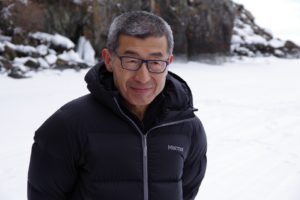
As our Dojo celebrates its 30th anniversary, we remember all our teachers with deepest gratitude. Each of them has made a tremendous contribution into the development not only of Koinobori Dojo and its students, but of the whole of Russian Aikido as well.
One of them is Seki Shoji Sensei.
This is a translation of reminiscenes by shihan Vadim Grachev, 6 Dan Aikikai, senior instructor of Koinobori Dojo, shared recently on our website.
Завершая юбилейный год Койнобори Додзё, публикуем перевод рассказа старшего инструктора Койнобори Додзё сихана Вадима Ивановича Грачёва (6 дан Айкикай) о кураторе и наставнике нашей Школы – сихане Сёдзи Сэки (8 дан Айкикай) (оригинал здесь).
A paragon of outstanding technical mastery, Seki Sensei is also one of the few examples of not only a true master in technical terms, but also of human qualities a true Teacher, a Sensei with a capital letter, needs to possess.
For many of us Sensei’s personality has always been and remains a reference point of human relations not only in the world of Aikido, but in our life outside the dojo as well. It is very hard to put into words all the feelings related to Seki Sensei. His integrity, honesty, internal refinement, sincere respect for every practitioner has always impressed not only Aikidokas, but those who simply had a chance to communicate with him.
Sensei once said that our technique is an expression of our character. The longer you practice, the more you realize how true these words are.
Precision and accuracy, speed and power, beauty and deep meaningfulness of each movement resembles a prayer expressed in motion. Conciseness, but not stinginess, power and strength, but not brute violence, respect for one’s partner, but not sycophancy or a desire to please. Each Aikido instructor, besides the practiced skills, frequently demonstrates his or her teaching approach. Some people deftly utilize their acting abilities and skillfully play the role of a mentor and teacher. This sometimes transforms in a kind of showing off, when one demonstrates oneself rather than the technique. This causes all kinds of narcissism, various theatrics, gestures, habits and other “gimmicks,” which grateful students are happy to ape, misguidedly thinking that by using these mannerisms in their technique they will be able to truly penetrate the essence of a sensei’s mastery. Some manage it better, some worse. In both cases students gladly imitate both the technique and the “add-on,” frequently forgetting that any extra movement is a loss of time and energy and gives the opponent a chance to “read” the practitioner’s character.
What’s different about Seki Sensei is his natural and intrinsic plainness. When speaking with him, you frequently hear advice to look at other masters as well. He always strives to protect us against clichés by saying: “Seek you own style. If you like what I do, of course, learn and practice it. If it doesn’t suit you, look for what feels congenial to you.”
Since 1995, when we first met Sensei, over more than 25 years we have never seen even a hint of desire to please, ingratiate, or assert himself. Quite the reverse, every gesture, every movement revealed a feeling of deep respect, nobility, and sincere desire to share everything Sensei knew.
Seki Sensei is the only master who in every class does his best to practice with every student, regardless of their level. He applies various technical approaches with different students, but one thing remains permanent – his respectful attitude to each partner. His philosophy is permeated with a single desire – to have his students practice without injuries, with great interest, and continuously perfecting themselves.
In Sensei’s opinion, the best way to preserve the right atmosphere is for the teacher to share everything they know, avoiding any secrets or intrigues. Then students make progress, which means improve their technique, and that, in its turn, motivates Sensei to develop further and keep moving forward. We should also note his wonderful ability to convey the essence of each and every movement. At his seminars Sensei emphasizes the ways of performing a movement correctly and draws minimum necessary attention to mistakes. He doesn’t try to overwhelm students with his authority, but rather helps them to believe in their potential and make the next step towards growth.
The discussion of Seki Sensei’s personality would have been incomplete if we only spoke about his behavior on the tatami. Even though that would have been enough to get an idea of him as a person. Leaving the dojo, Sensei continues to show fatherly concern towards anyone who happens to be with him. His caring and thoughtful attitude, especially towards beginners, has always caused both wonder and admiration. When people from our dojo had a dinner with Sensei after a seminar class, the first thing that impressed them was the way Sensei made sure everyone ate well. He paid special attention to those who had only recently started practicing. That was a good example of the way a true Master and Teacher should behave: you look after your juniors first, only then you can eat yourself.
There have been cases when prosperous people during their trip to Japan paid considerable money for practice with Sensei. Yet Sensei always refused saying his work didn’t cost that much. It wasn’t a pose, but a clear statement of what he thought and how he lived. Finally, he spent all the money earned for classes to feed all the people from our dojo who came to Japan that time. He is a very modest and a truly noble man.
Every time, seeing the disgraceful things happening in the world of Aikido, seeing machinations, money grubbing, and all kinds of unpleasant qualities in people who should have been an example for their students, I recall the image of our Sensei, whose living example drowns out all the negative stuff and human weaknesses manifested in the world of Aikido.
Such people usually become heroes of books and films. It is an ideal we all wish to see in any Master. Unfortunately, in life things are a lot more complicated. You can master technical aspects, spend hours practicing techniques, straining your body, but finally lose to your desire to achieve superiority over others, to seek profit, to occupy a high position, to gain merits, rewards, recognition and other attributes of vanity. This is where the red line runs that separates a true Master from a person who simply possesses certain good skills.
For the former, ranks, medals, awards are a nuisance, because his major objective as he walks the way of Budo is to perfect himself, consolidate his ethical ideals through the practice of Budo, and the chance to later transfer his knowledge to students. This process is endless.
For the latter, the desire to be the best, to get titles, awards and positions is the key motive for practice. When these objectives are achieve, you can see both his technique and personality go downhill.
This doesn’t mean that it’s bad to have your achievements recognized and to be respected. But it shouldn’t be a goal in itself. It’s only a tool with which the society can acknowledge a person, no more. And it often happens that people worthy of respect are left behind while social climbers overemphasize their achievements despite mediocre abilities and wink and smile cunningly from TV screens and Internet resources.
This year Koinobori Dojo celebrates its 30th anniversary. This is utterly and completely due to our Master, Teacher and Mentor – Seki Sensei. In 2020 we managed to visit the celebration of Sensei’s 70th birthday. For him it was quite unexpected, but, it seemed to us, a source of joy. We managed to return home before the borders were closed. Unfortunately, we haven’t seen each other since then. Nevertheless, we keep in touch with Sensei all the time. He frequently supports us with his letters. We are all eagerly waiting for a chance to meet Seki Sensei again and practice with him.
We wish him and his near and dear ones good health and long life. We are truly thankful that there is such a man in this world as Sensei!

